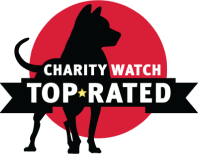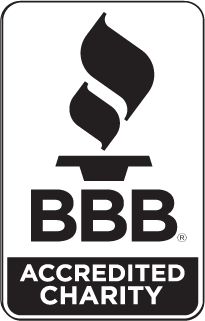Addressing the Global Shortage of Health Care Workers
The stakes for the world’s health have never been higher. Our ability to meet the challenges depends on whether the men and women on the ground have what they need to do their job. Project HOPE is committed to empowering health care workers to provide expert care.

Health care workers are the key to solving our greatest health challenges.
Project HOPE’s vision of a world where everyone has the health care needed to reach their full potential directly intersects with one of the most significant issues affecting global health: the shortage of a properly trained health care workforce.
The World Health Organization predicts a global shortage of 18 million health workers by 2030. An additional 9 million nurses and midwives are needed by the end of the decade to reach Sustainable Development Goal 3 of ensuring healthy lives and well-being for all.
Gaps in health care access threaten the health of people around the world, including in the U.S. A lack of skilled health workers is one of the greatest hurdles that prevents people from receiving quality health care.
Project HOPE works at the epicenter of today’s greatest health challenges to train and equip health care workers so they can deliver expert care when and wherever it’s needed: whether treating infectious and chronic diseases, responding to disasters and health crises, or protecting the health of women and children.
Building An Effective Health Workforce

Project HOPE works around the globe to train and support health care workers in a range of care — from providing pediatric services in Indonesia, to improving maternal and neonatal care in the Dominican Republic, and responding to natural disasters like the 2021 earthquake in Haiti and the unfolding humanitarian crisis in Ukraine.
In 2021, we trained more than 150,000 health care workers with the skills and knowledge they need to care for their communities, respond in times of crisis, and save lives around the globe.
In China, for example, Project HOPE has been working for more than three decades to train health care workers to meet the demands of its growing, aging, population. When COVID-19 first emerged in Wuhan, some of the first responders were graduates of the Wuhan HOPE School of Nursing. The school has trained tens of thousands of nurses from across the country in hands-on care, including disaster preparedness, and takes students out of the classroom to put their studies into practice.
“The Wuhan HOPE School of Nursing is very different from other nursing programs in that it focuses on preparing nurses as leaders, managers, and educators,” says Sharon Redding, president of Project HOPE’s Alumni Association, who helped train nurses in the school. “Many of the nurse managers of hospital units in Wuhan are HOPE school graduates — they have been educated on disaster management principles in their undergraduate curriculum.”
Our Train-the-Trainer Methodology

In response to COVID-19, Project HOPE has trained more than 113,000 health care workers and frontline personnel using a training of trainers approach. In the early months of the pandemic, Project HOPE’s trainings provided critical knowledge to help frontline personnel treat patients and prevent the spread of the disease. Over time, trainings expanded and evolved to include guidance for COVID-19 vaccinations and resources for health care workers to protect their own mental health.
Our COVID-19 trainings have reached students, midwives, nurses, doctors, and other frontline personnel in more than 150 countries and territories around the world. Across the map, these Master Trainers were trained to share the knowledge they learn with other health care workers in their communities, effectively cascading the training to reach thousands more health personnel.
We have used the train-the-trainer method for years. When the Ebola epidemic struck West Africa in 2014, the outbreak led to the death of 21% of all health care workers in Sierra Leone, further complicating already challenging health problems for women and children. Project HOPE has been helping the health care system fight back, providing local health care workers with lifesaving training and the skills to share their new knowledge with others.
“The trained district trainers will now pass on their training to labor and delivery staff at the peripheral units,” says Eden Ahmed Mdluli, Project HOPE’s senior program officer for reproductive, maternal, newborn, and child health. “This creates a cascade effect where lifesaving knowledge is passed from national master trainers to district level trainers who will later train non-hospital level providers.“
As the shortage of skilled health workers around the globe continues to grow, Project HOPE remains committed to giving health care workers the knowledge, tools, and support needed to deliver expert care and save lives.
We place power in the hands of local health care workers to save lives across the globe.
For more than 60 years, Project HOPE has trained health care workers around the world with the knowledge and skills they need to save lives. This lifesaving work must continue, but it isn’t possible without the support of people like you.
Your support can help Project HOPE continue to provide the training and supplies needed to save lives.







